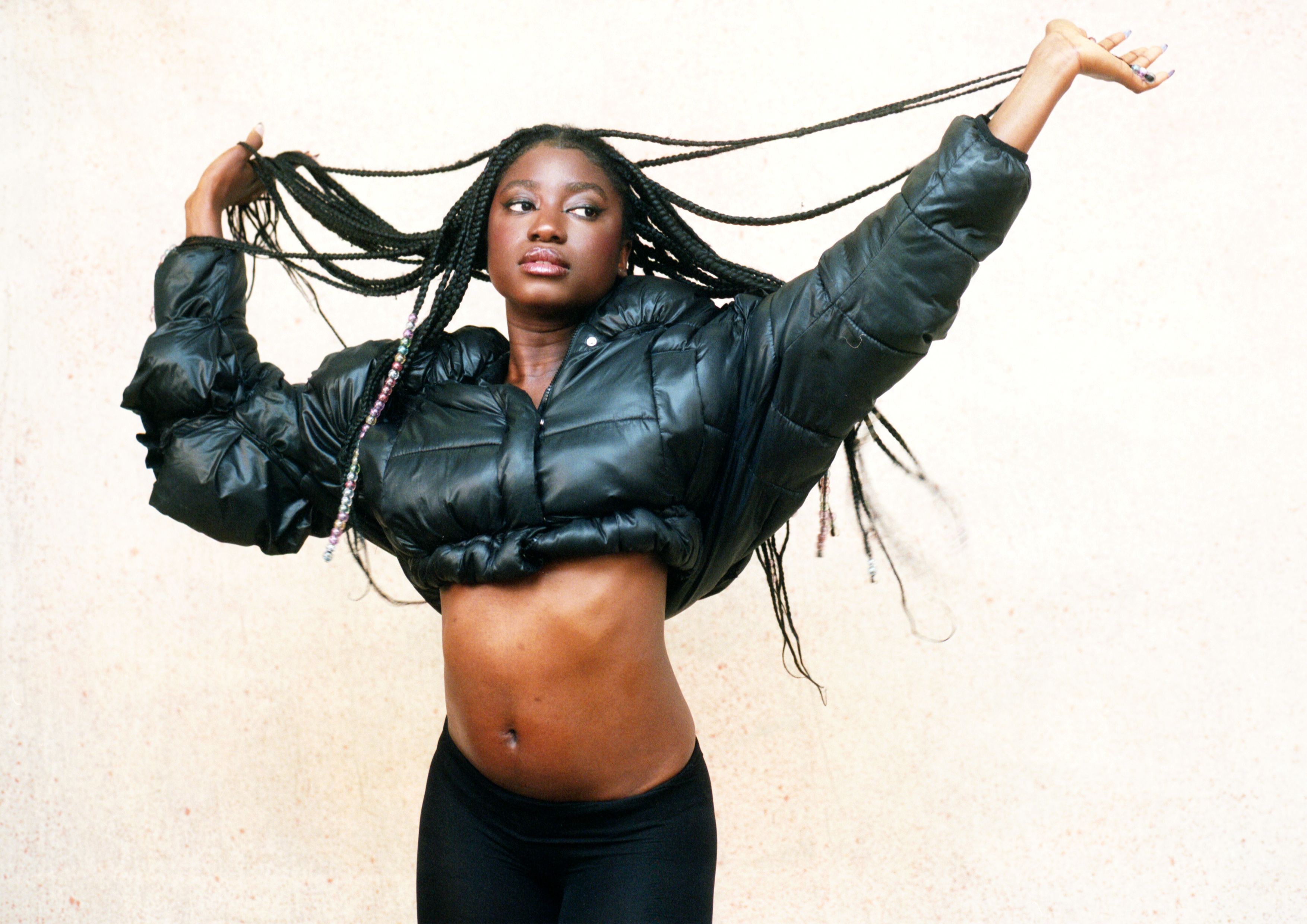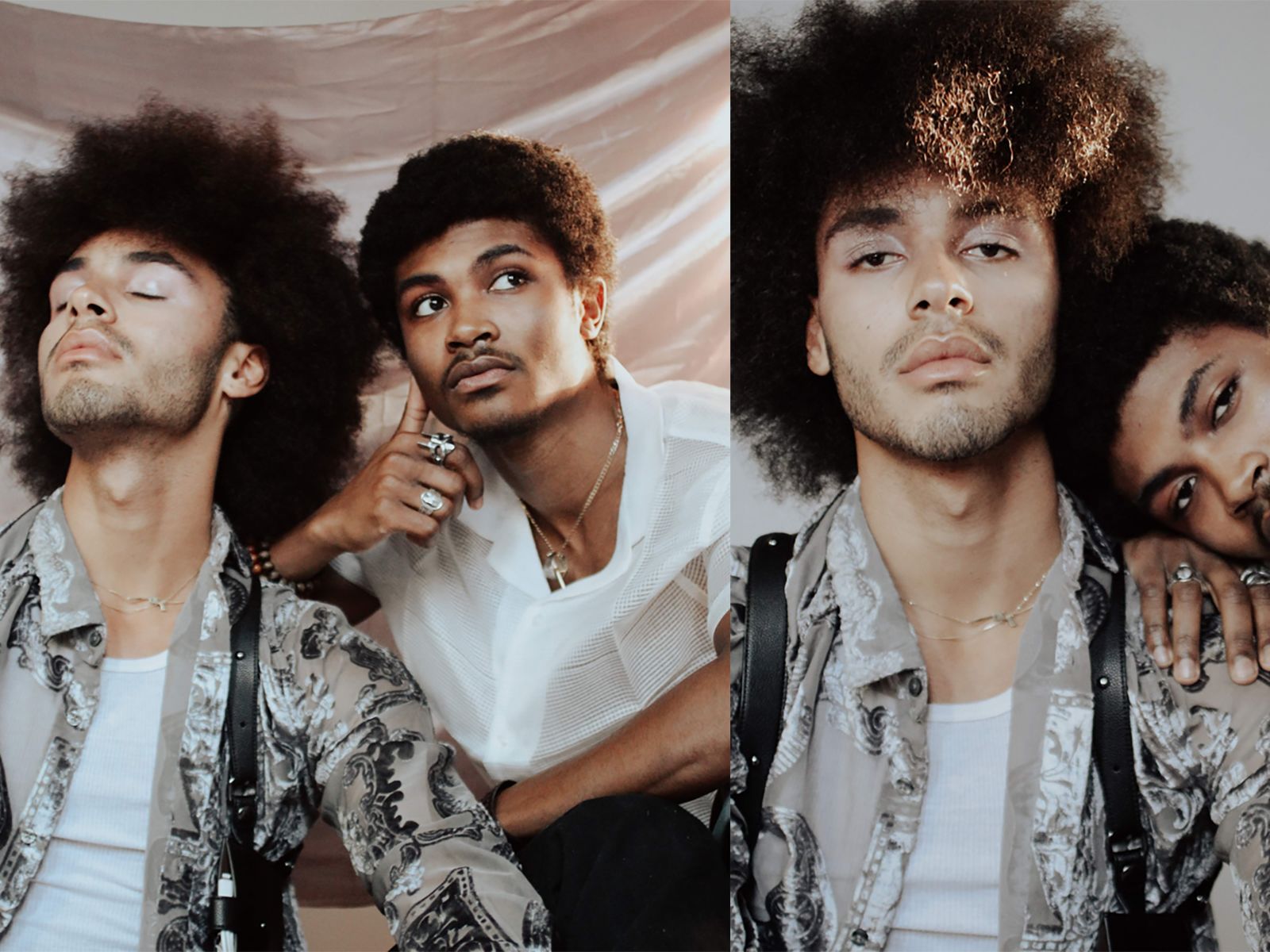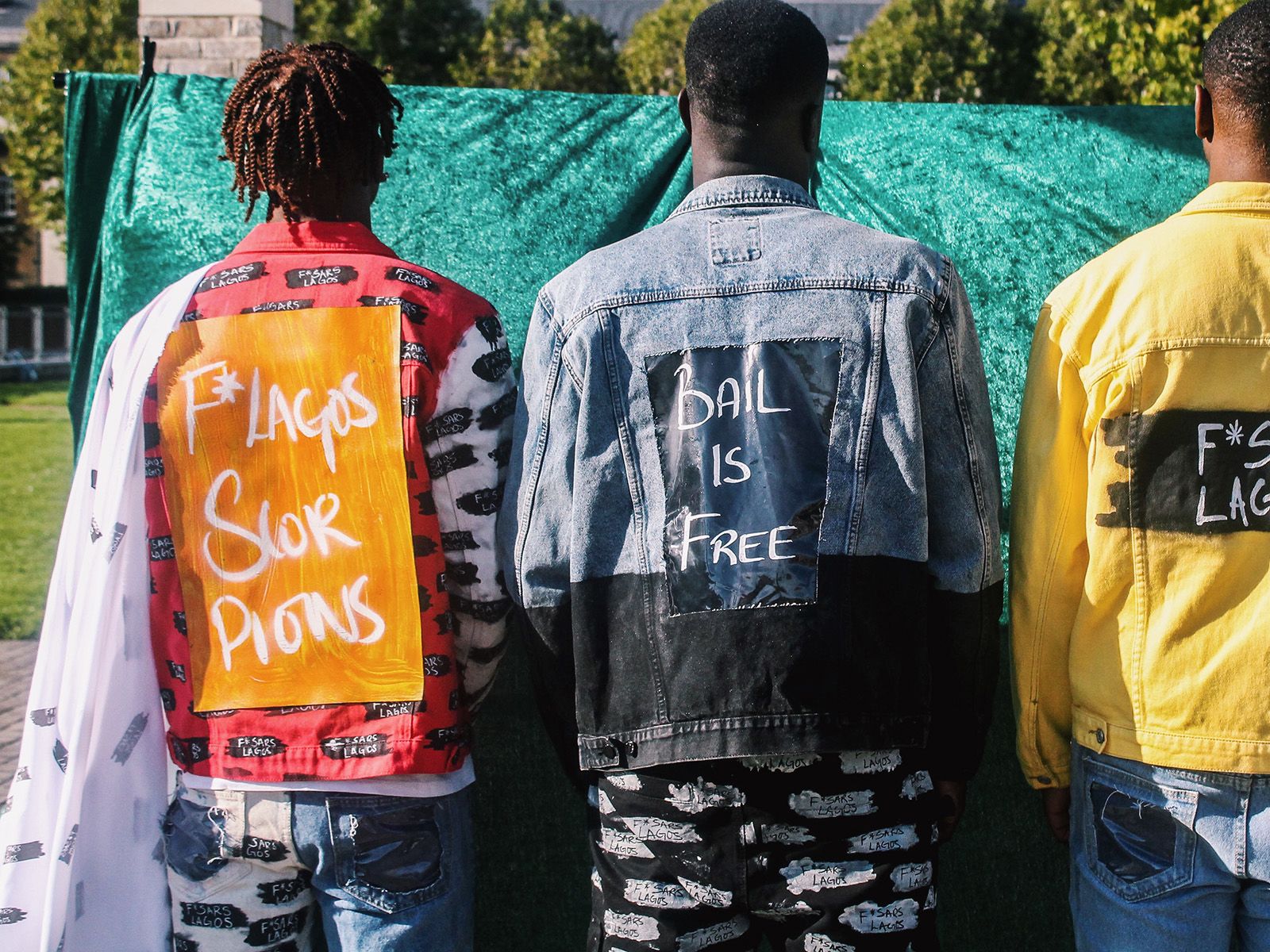
LCF student Sarah Ejionye exhibits in Black History Month exhibition 'Looking Forward'

- Written byJ Tilley
- Published date 14 October 2021

“After this year of awakening and movement towards acknowledgement of truths we were already too familiar and aware of, what do we want to share about our lived histories as they are now? Moving forward, how do we want our thoughts on Blackness and lived experiences to be documented, shared and learned from? What is the relationship between reflecting and evolving when it comes to our history and lived experiences? How can our image evolve through art for the future?” Rachel Williams, Arts SU Education Sabbatical Officer
In recognition and celebration of Black History Month 2021, Arts SU put out an open call for students to showcase their work in the Window Galleries at CSM to celebrate Black creatives at UAL. The theme for this year was “Looking Forward” - the relationship between reflecting and evolving when it comes to our history and lived experiences. The work for this year's Black History Month exhibition was selected and curated by the Arts SU's Sabbatical Officers and members of the African and Caribbean Society. Three of the exhibiting artists are LCF students, and we caught up with them to find out more about the influences inspiring their work, plus their thoughts on racism within the creative industries today. Next in the conversation we chat with Sarah Ejionye, a BA (Hons) Fashion Photography student, about beginning her journey in exploring business opportunities.
To which extent do you draw upon cultural influences when undertaking projects?
I tend to draw on cultural themes greatly in my work, whether that be directly through looking at my family’s culture (both sides are from Nigeria) or looking at aspects of the black diaspora as a whole. While sometimes I specifically do projects looking at culture, in my photography I tend to photograph the people around me and as a result indirectly reference things like Black British culture and heritage as I document the people around me.
Can you give us an overview of your creative process while developing the idea for your pieces in the gallery?
Earlier this year, we did a unit that was brand new to the course which involved using technology such as CGI, Virtual & Augmented Reality and Photogrammetry as a way of making fashion images. Through this unit I started using Blender, a 3D computer graphics software and ended up falling in love with it. My goal for “Tokenism”, the project I was exhibiting was to connect my love for this medium with my existing practise, which was mainly analogue photography. Then I came up with the idea to combine traditional photography with CGI, by creating an interactive 3D environment and placing my images into it.

What does it mean to you, to be a black woman in the creative arts?
It can be both alienating and empowering, more so the latter as the industry slowly becomes more diverse. The feeling of having to represent everyone who looks like you can cause a lot of pressure, and needing to work twice as hard just to get a fraction of the recognition of my white peers does weigh on me at times. On the other hand, it feels exciting to witness a new wave of black female photographers, people such as Nadine Ijewere not only made me realise that this career was viable for someone like me, but also that black womanhood could finally be represented in a way that isn’t demonised, exoticised or belittled.
In your opinion, what are the biggest difficulties we face as a fashion industry striving to become anti-racist?
A big barrier is how much of a gap there still is in terms of photographers, stylists, make-up artists of different backgrounds, and also the industry itself still perpetuating the culture of unpaid internships, a practise which often alienates poc as many of us come from lower income backgrounds. The biggest changes come when the people in the most powerful positions in the fashion industry also have anti-racists mindsets and without getting rid of exclusionary practices like nepotism, unpaid internships and what sometimes amounts to bullying within the industry we can’t move forward.
Tell us why you chose Fashion Photography at LCF? What does photography enable you to express?
I’d always been creating art and had a huge love of fashion photographs since I was a child, and even collected contemporary and vintage magazines. I wasn’t entirely sure what creative subject I wanted to study and decided on photography; since I’d always been fascinated with fashion images the course at LCF seemed obvious. I feel like I can portray how I see the world with photography, express the beauty of women of colour and the endless stories that can be told through images.

Find out more about Black History Month at LCF.
View more work from BHM Exhibition: Looking Forward at CSM Gallery.
Find out more about UAL African Caribbean Society.

